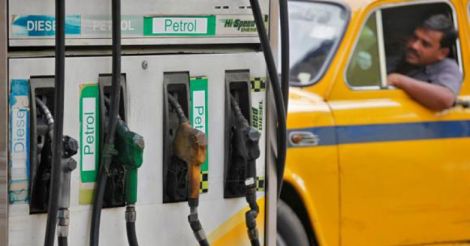Indians have a natural liking for diesel engines. Majority of the vehicle buyers, across segments including sedans, hatchbacks and SUVs, prefer diesel engines. The difference between diesel and petrol prices is the fuel for this affection.
The thumb rule is that if the monthly usage is more than 1,500km, then one should go for a diesel car. Though there may not be any immediate increase in the diesel prices, over a period of time the delta is expected to shrink. However, diesel cars come at a premium to their petrol cousins. So, the dilemma for most people is whether to go for a costlier diesel car or settle for a petrol car. If you are also facing the same dilemma, then read on and decide for yourself.
Price vs usage factor
A small petrol car costs anywhere up to Rs 5 lakh. The diesel version of the same car costs around Rs 6- Rs 6.5 lakh. This means that the premium that you pay for a diesel car over a petrol variant is almost Rs 1.5 lakh. Although diesel cars are more fuel efficient, one has to also keep in mind that the average monthly running for private cars is only around 1,000 kilometres.
This works out to approximately 30-35km running per day. If a petrol car needs 55 litres of fuel to cover the 1,000km that it does in a month, a diesel car consumes only 45 litres to run the same distance (approximate estimate). As of September 2015, Petrol costs around Rs 64.74 per litre and diesel retails at Rs 48.02 per litre.
As per the above estimates, a petrol car will consume fuel worth Rs 3,560 per month while the diesel car will do the same distance on fuel worth Rs 2,641. This means that the diesel car owner makes a net saving of Rs 919 every month.
The average life of a car is approximately five years. Considering aforementioned scenario, a diesel car user will make a net saving of Rs 11,000 per year or Rs 55,000 over the life span of the car (This does not include the vehicle’s maintenance and other costs. Diesel cars are heavier on the pocket to maintain).
This means that the incremental spending of Rs 1.5 lakh on a diesel car with the hope of saving on fuel costs does not provide any gains over the long term. Worse, it in fact causes a loss.
These days only a very few people buy a vehicle by paying the entire amount in cash up front. Those who buy cars on loans think that since the incremental 1.5 lakh goes from the vehicle loan and not from the cash in hand, going for a diesel car will help them eventually save more in the long run. However, what they forget is that the interest component of the loan, for the incremental Rs 1-2 lakh spent on a diesel variant will be around Rs 2,000 per month. This, when compared to a monthly saving of maximum Rs 1,000 is a loss making proposition.
For someone who still goes for a diesel car to save on the fuel costs, it takes a minimum of eight years to break even. Meanwhile, had the incremental spending been parked in a fixed deposit with a financial institution, it would have more than doubled in eight years. So where is the saving?
This is not to say that diesel cars are not cost efficient. If the monthly usage is more than 2,000 kilometres, then it makes sense to go for a diesel version. That said, for all personal purposes, a petrol car better fits the bill.
























 Majority of the vehicle buyers, across segments including sedans, hatchbacks and SUVs, prefer diesel engines. (File photo)
Majority of the vehicle buyers, across segments including sedans, hatchbacks and SUVs, prefer diesel engines. (File photo)
Disclaimer
The comments posted here/below/in the given space are not on behalf of Manorama. The person posting the comment will be in sole ownership of its responsibility. According to the central government's IT rules, obscene or offensive statement made against a person, religion, community or nation is a punishable offense, and legal action would be taken against people who indulge in such activities.